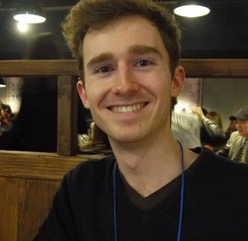Subscribe to our newsletter
The Beginner’s Guide to Being an LGBT+ Ally Part 2
This post is the second instalment of two-part series.
In the first post, we discussed that just because you’re not LGBT+ it doesn’t mean you can’t help! The Queer in STEM study (which you can read here) established that LGBT+ people are much more likely to come out when they perceive their environment to be a supportive one. When it comes to making the lab or the classroom a more LGBT+ friendly place, there’s a huge amount that you can do. In part one we covered some ways to help such as: learning about LGBT+, thinking before you assume, being open about your support, challenging discriminatory language, taking note of role models and knowing your local support networks.
Here are more ways that you can help:
- Push for inclusivity and diversity
Changing the status quo is rarely achieved by a single group, especially when they’re a minority that is historically ignored or dismissed out of hand. Political and corporate support for LGBT+ rights has risen in recent years precisely because it’s become expected by a large number of people, most of whom are members of the majority and are harder to ignore. Please actively support our community when we call for more inclusive or pro-diversity policies by adding your voice to ours.
If you’re unsure how to go about improving diversity and inclusivity policies in your lab or place of work, take a look at Stonewall’s advice for organisations (https://www.stonewall.org.uk/sites/default/files/straight_allies.pdf). They provide a great basis for checking whether your recruitment, support and anti-discrimination rules are up to scratch.
- Recognise unreasonable demands
Science is incredibly international, and it is rarely acknowledged that a scientist’s success is highly dependent on being able to travel to other places, to attend conferences, arrange collaborations or simply to work in new labs. But there are still many parts of the world where LGBT+ people are not safe: this can vary from countries lacking provisions for protecting us from discrimination, to countries where the law actively punishes LGBT+ people for existing.
For supervisors and others in positions of authority, it’s important to recognise that an LGBT+ employee or student may not be comfortable travelling to certain places, and that you will need to help them find alternative ways to further their career without endangering their safety.
- Learn about your unconscious biases
Discrimination isn’t always a conscious decision, but comes from prejudices we don’t realise we have. These unconscious biases have a profound impact on how we interact with other people and how we judge their ability, and they’re more common than you might think.
There are tests online that can help you understand how you associate different identities with particular attributes. Harvard provide several demo tests at https://implicit.harvard.edu/implicit/uk/selectatest.jsp that cover many different biases, including sexuality. By taking a frank look at your own biases, you will understand yourself better and that’s the first step to self-improvement.
- Accept your limitations
No matter how much you want to help the LGBT+ community, remember that this isn’t about you. Your perspective is invaluable, but it’s specific to you as mine is specific to me. This is true for us all, I am a white, bisexual cis-male and my perspective reflects that, I cannot expect to fully understand what it’s like being transgender, or the additional issues faced when being LGBT+ intersects with being part of another minority. That doesn’t mean you or I should give up, but it does mean we both need to listen to others if we want to help them effectively.
None of us will be able to help every time, and sometimes we might miss the mark entirely. It’s okay to get things wrong, but try not to be offended if someone calls you out on your mistakes. This is why it’s so important to listen to your LGBT+ friends, family, students and colleagues, by respecting our perspective and our concerns you will become a better ally to us all.
Finally, if you are ever unsure that you can make a difference, remember that cultures change one person at a time, that it is through the actions of individuals that we make the world a more inclusive place. And recognise that everyone stands to gain from working in a more positive and supportive environment: there is an growing body of evidence that good practices for supporting minority groups in academia (women, POC, LGBT+, etc) create a healthier, more supportive climate for everyone. So celebrate the diversity of your lab, help support your friends and colleagues, and we will all reap the benefits.
 Joby Razzell Hollis is a multi-disciplinary scientist with a degree in chemistry from Sussex University and a PhD in physics from Imperial College London, where he studied the morphology of organic solar cells. He is frank about his sexuality and how it intersects with his career, and uses that experience to advocate for greater diversity and inclusivity in science, particularly for LGBT people.
Joby Razzell Hollis is a multi-disciplinary scientist with a degree in chemistry from Sussex University and a PhD in physics from Imperial College London, where he studied the morphology of organic solar cells. He is frank about his sexuality and how it intersects with his career, and uses that experience to advocate for greater diversity and inclusivity in science, particularly for LGBT people.

